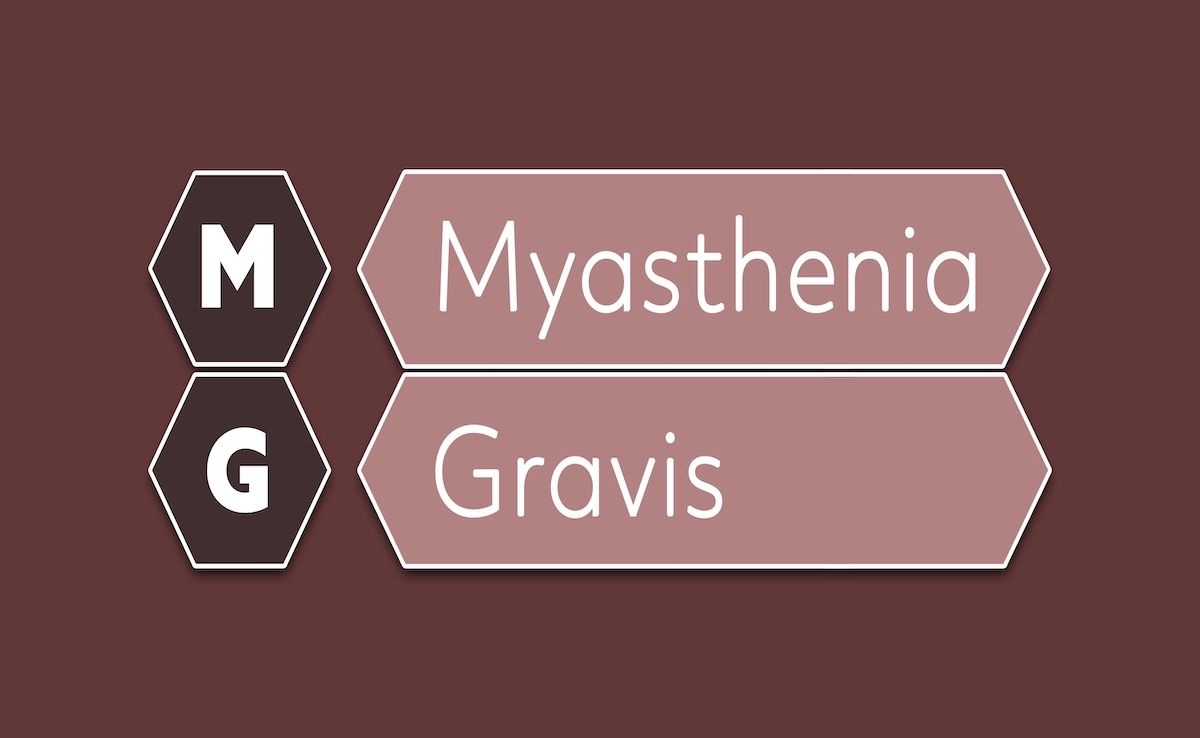- Center on Health Equity & Access
- Clinical
- Health Care Cost
- Health Care Delivery
- Insurance
- Policy
- Technology
- Value-Based Care
Gefurulimab for gMG Meets Key End Points in PREVAIL Trial
The primary end point in PREVAIL is Myasthenia Gravis-Activities of Daily Living total score improvement from baseline, and the secondary end points are Quantitative Myasthenia Gravis total score and Myasthenia Gravis Composite total score.
An earlier version of this article was published by NeurologyLive®.
The investigational agent gefurulimab (AstraZeneca), a subcutaneous complement C5 inhibitor administered once weekly, has produced positive data in the phase 3 PREVAIL study (NCT05556096), meeting primary and all secondary end points in patients with anti-acetylcholine receptor (AChR) antibody-positive generalized myasthenia gravis (gMG).1 Treatment produced statistically significant and clinically meaningful differences from baseline to week 26 vs placebo on the primary end point of Myasthenia Gravis-Activities of Daily Living (MG-ADL) total score.
PREVAIL, a global, double-blind, placebo-controlled, parallel study, included 260 patients with gMG across 20 countries who were randomly assigned to gefurulimab or placebo for 26 weeks and then had the option to proceed to the open-label extension analysis (NCT05556096), which remains ongoing.2
The trial, which featured only those with anti-AChR antibody-positive gMG, also showed that gefurulimab was safe and well tolerated, with a profile that matched previous trials of C5 inhibitors. In addition to showing positive results through MG-ADL total score, gefurulimab led to statistically significant and clinically meaningful improvements in the secondary end points of Quantitative Myasthenia Gravis total score and Myasthenia Gravis Composite total score.
"Rapidly fluctuating symptoms and the unpredictable disability associated with gMG can affect nearly every aspect of a patient's life, making early intervention and sustained disease control a critical treatment goal,” said Kelly Gwathmey, MD, associate professor of neurology and chief, Neuromuscular Division, Virginia Commonwealth University, and PREVAIL principal investigator, in a statement.1 "A once-weekly, self-administered C5 treatment option would offer patients greater convenience and independence in managing their condition, empowering them to have more control over their therapy."
In the PREVAIL analysis, gefurulimab produced statistically significant and clinically meaningful differences from baseline to week 26 on the primary end point of Myasthenia Gravis-Activities of Daily Living total score. | Image Credit: lhphotos-stock.adobe.com

Gefurulimab targets and binds to terminal complement protein C5, thereby blocking the terminal complement pathway of complement activation. By also binding to albumin via its albumin-binding domain, gefurulimab extends its half-life while inhibiting complement-mediated inflammation and cell lysis—key drivers of tissue destruction in inflammatory and autoimmune diseases such as gMG.
"Building on Alexion’s pioneering leadership in gMG, these positive results from the PREVAIL phase III trial demonstrate the potential for gefurulimab to offer rapid and sustained disease control for this patient community,” said Marc Dunoyer, CEO, Alexion, AstraZeneca Rare Disease, in the press release announcing the results. "These data, reflecting patient participation across 20 countries, reinforce the established safety profile and efficacy of C5 inhibition and show the potential for gefurulimab as a first-line biologic, with the convenience of a self-administered option."
Prior to PREVAIL, gefurulimab had been studied in a phase 1 trial of healthy volunteers (NCT06208488), primarily to assess pharmacokinetics and safety profile. The trial featured patients aged 18 to 45 years randomly assigned 3:1 to either gefurulimab or placebo for 7 weeks.3 The data, presented at the 2023 American Academy of Neurology (AAN) annual meeting, showed that the therapy was well tolerated, with no serious adverse events reported.4
In the study, patients received either subcutaneous gefurulimab in a single dose (30-1700 mg) or through multiple doses (100 or 300 mg) once weekly for 3 weeks, or as a single intravenous dose. Overall, serum exposure increased in a dose-dependent manner over 3 weekly doses of 100 mg and 300 mg, and single doses of at least 100 mg, with extended multiple dosing achieving complete terminal complement inhibition (serum free C5 < 0.5 µg/mL). Low-titer, treatment-emergent antidrug antibodies were observed in 12% of participants who received gefurulimab.
To date, there are 2 FDA-approved complement inhibitors for the treatment of gMG in patients who are anti-AChR antibody-positive. Eculizumab (Soliris; Alexion), a terminal complement inhibitor, was approved in 2017 for adults,5 and ravulizumab (Ultomiris; Alexion), a long-acting C5 complement inhibitor, was approved in 2022.6 Both therapies work by inhibiting C5 in the complement cascade, reducing immune-mediated destruction; however, ravulizumab has the benefit of less frequent dosing.
References
1. Gefurulimab dual-binding nanobody demonstrated statistically significant and clinically meaningful improvement in functional activities of daily living in adults with generalised myasthenia gravis in PREVAIL phase III trial. News release. AstraZeneca. July 24, 2025. Accessed July 27, 2025. https://www.astrazeneca.com/media-centre/press-releases/2025/gefurulimab-nanobody-met-phase-iii-endpoints.html
2. Safety and efficacy of ALXN1720 in adults with generalized myasthenia gravis. Clinicaltrials.gov. Updated June 12, 2025. Accessed July 27, 2025. https://clinicaltrials.gov/study/NCT05556096
3. A study of subcutaneous gefurulimab using prefilled syringe versus autoinjector in healthy adult participants. Clinicaltrials.gov. Updated October 23, 2025. Accessed July 27, 2025. https://clinicaltrials.gov/study/NCT06208488
4. Ortiz S, McEneny A, Amancha P, et al. Safety, tolerability, pharmacokinetics, pharmacodynamics and immunogenicity of subcutaneous and intravenous ALXN1720 in healthy volunteers: a phase 1, randomized, double-blind, placebocontrolled, single and multiple ascending dose study. Presented at: 2023 AAN Annual Meeting. ABSTRACT P1-5.016
5. FDA approves Soliris (eculizumab) for the treatment of patients with generalized myasthenia gravis (gMG). News release. Alexion. October 23, 2017. Accessed July 27, 2025. https://myasthenia.org/wp-content/uploads/Portals/0/Press%20Release%20Soliris%20FDA%20Approval.pdf
6. Ultomiris approved in the US for adults with generalised myasthenia gravis. News release. AstraZeneca. April 28, 2022. Accessed July 27, 2025. https://www.astrazeneca.com/media-centre/press-releases/2022/ultomiris-approved-in-the-us-for-adults-with-generalised-myasthenia-gravis.html#
